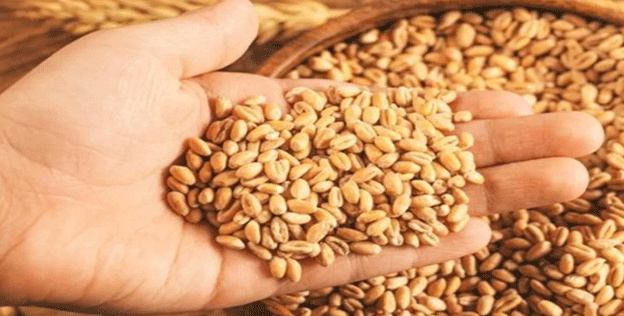As the 2025-26 rabi marketing season begins, wheat farmers in Bihar are in for a substantial economic boost. The Indian Food Corporation (FCI) has initiated preparations for wheat procurement, and in a move to support farmers, the Indian government has increased the Minimum Support Price (MSP) by ₹150. This hike means that the government will now purchase wheat at ₹2,425 per quintal, up from the previous rate, significantly benefiting farmers who rely on wheat as a primary crop.
Wheat Cultivation in Bihar
Bihar, with its fertile plains, is one of India’s largest producers of wheat, contributing substantially to the country’s wheat stock. Out of the total 40 lakh hectares dedicated to rabi crops, around 26 lakh hectares are used for wheat cultivation. This makes wheat an essential crop for the state, not only for local consumption but also as a significant contributor to the national grain supply.
The government’s move to raise the MSP aims to provide better prices to farmers and encourage more wheat sowing. With wheat prices rising globally, this increase in MSP is expected to provide a cushion for farmers facing costlier inputs such as fertilizers and labor.
Online Registration and Transparent Process
One of the key aspects of the procurement process this year is online registration. Farmers wishing to sell their wheat to government procurement centers will need to register through the Agriculture Department’s DBT portal. Both land-owning farmers (raiyat) and sharecroppers (non-raiyat) can register and sell their wheat at the new MSP of ₹2,425 per quintal. This system ensures transparency, allowing farmers to track their sales and payment process.
Once registered, farmers can sell their wheat at designated government centers, and payments are expected to be made within 48 hours. This online system aims to streamline the wheat procurement process and reduce delays, which were common in the past.
Setting Up Procurement Centers
To ensure smooth wheat procurement, the government, through FCI, will set up procurement centers across all revenue districts. Additionally, the state government has partnered with primary agricultural cooperative societies (PACS) and local trade bodies to establish procurement points at the panchayat and block levels, making it easier for farmers to access the centers. These decentralized centers ensure that even farmers in remote areas have easy access to government support.
Soil Health and Wheat Yields
While the government has made strides in boosting wheat prices, farmers are also advised to focus on soil health to maximize their crop yield. Soil testing is an essential step before planting wheat to ensure that the soil’s pH is within the ideal range for wheat growth. Soils with a neutral pH (6.5 to 7.5) are considered optimal, as they allow for better nutrient absorption, leading to healthier and more productive crops.
In regions where soil is acidic, adding lime to raise the pH can improve soil quality. Similarly, alkaline soils can be treated with gypsum or pyrite to bring the pH to neutral. By improving soil health, farmers can ensure that their wheat crops are well-nourished and yield better results.
The Path Forward for Bihar’s Wheat Farmers
With the increased MSP, the streamlined online procurement system, and a focus on soil health, Bihar’s wheat farmers are set to benefit from higher earnings and improved yields. The government’s proactive support in the form of price hikes and procurement infrastructure demonstrates a clear commitment to empowering farmers and ensuring food security in the region.
The rise in wheat MSP, coupled with improved procurement systems and soil health initiatives, promises to be a turning point for wheat farmers in Bihar. By addressing both financial and agricultural challenges, the government is creating a favorable environment for farmers to not only boost their income but also ensure sustainable and productive farming in the years ahead.
Error




